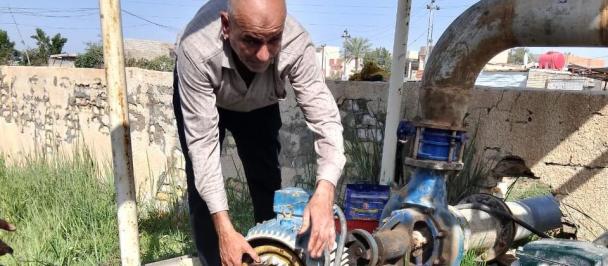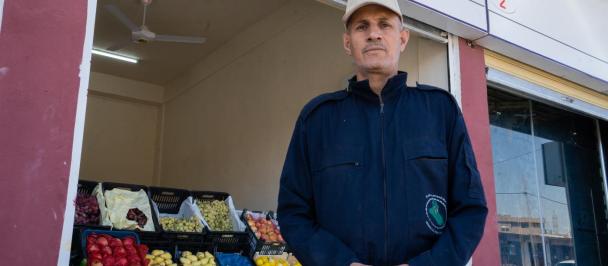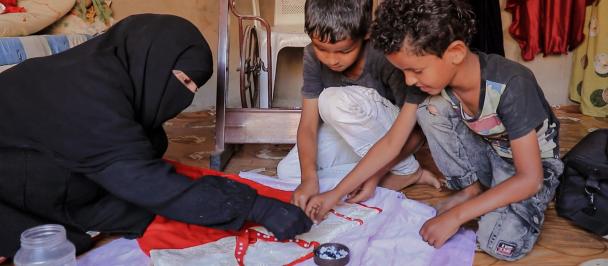How Ramadi's Vocational Training Centre is producing Iraq’s future entrepreneurs
Skilling for the future
September 13, 2022
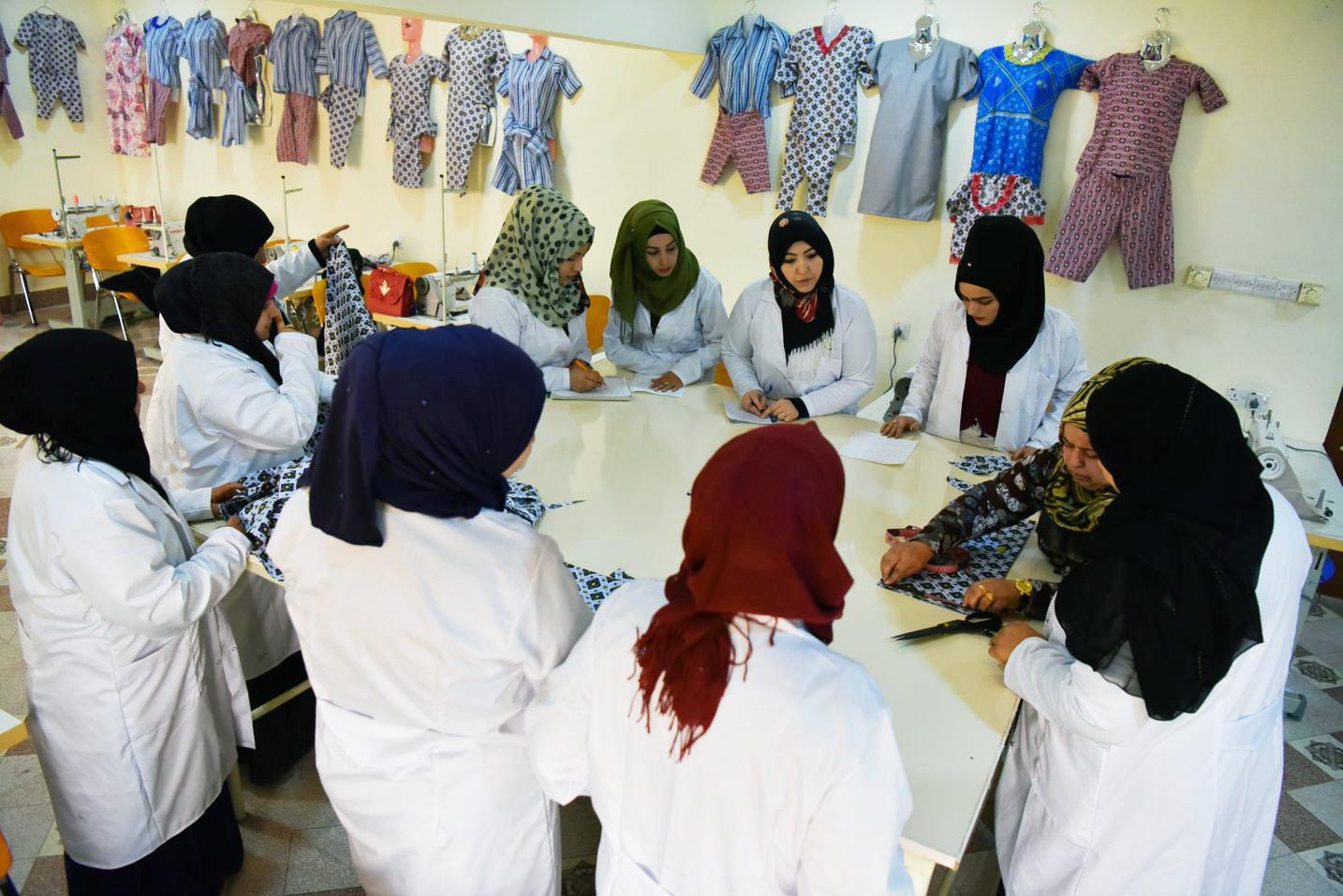
Training in sewing and tailoring is ongoing at the Ramadi Vocational Training Center
Zaman Awad Farhan, now 30, returned to Ramadi in 2017 after liberation from ISIL. However, when she returned with her husband and three children, she was met with heartbreaking devastation. "Our house was left damaged by a mortar attack. I used to run a provision store and lost everything. Having used up all my financial savings to take care of my family during the conflict, I could not reopen the store. It forced me to look for odd jobs to make ends meet."
Looking for a stable source of income, Zaman came across a one and a half month vocational training opportunity for hairdressers at the Vocational Training Centre in Ramadi. "I saw the call for applicants on social media and immediately applied.” Now, she is pursuing her dream of opening her salon.
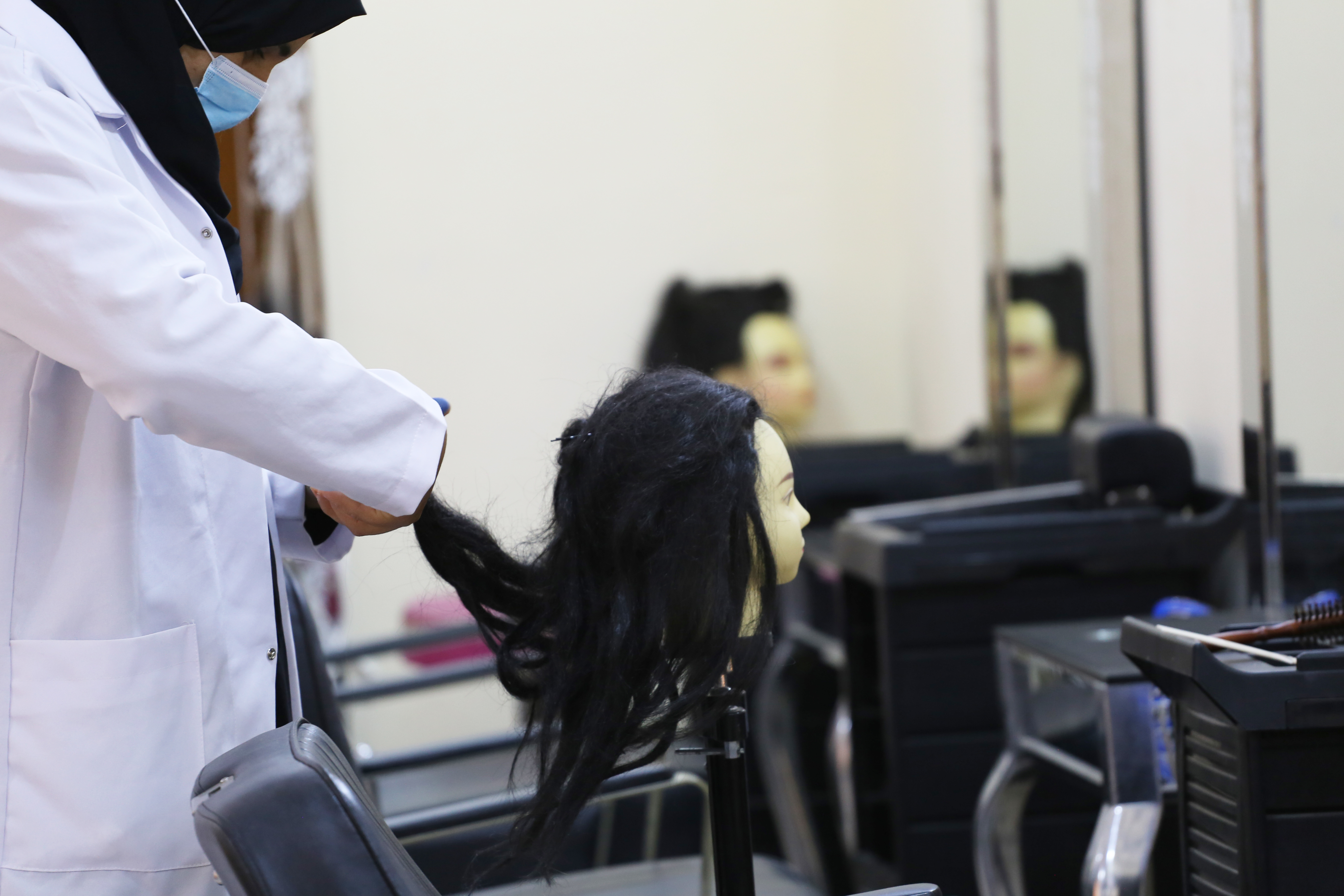
Zaman during hairdressing training at the Centre
The Center was reopened in December 2019 after it was left damaged in the ISIL conflict. Its main building and 14 workshops were rehabilitated and equipped through UNDP’s Funding Facility for Stabilization, led by the Governorate of Anbar and local municipality in Ramadi. Since its reopening, more than 2,000 Iraqis like Zaman have been trained through the Center, with the number increasing each year.
Given the availability of funds for courses for, over 130,000 employment seekers registered with the Directorate of Labor and Social Affairs in Anbar can access the Center to gain skills in repairing household appliances, hairdressing, plumbing, sewing, carpentry, electrical works and car mechanics.

The damage (left), during rehabilitation (centre) and after completion (right) of the Centre
Ahmed Mohammed Zaki, 44, manages the Center. He ensures it is well-equipped, maintained and efficiently managed. "We have come a long way since liberation. I am thrilled to see the people of Ramadi benefit from the various trainings conducted here. This Center has become a hub for not just trainings and workshops, but also meetings and discussions for social cohesion activities."
"Vocational skills are traditionally looked down upon in Iraq. We need to shift people's mindsets and make them see this as an opportunity to set up their own business." Ahmed plays a crucial role in spreading awareness about the various courses available across hard-to-reach communities in Anbar, providing the most vulnerable with opportunities to access long-term, stable employment.

Ahmed, the manager of the Center stands inside one of the training halls
“The rehabilitation of the Center has played a huge role in creating economic and job opportunities for people returning to Ramadi and finding ways to rebuild their life. We have maintained the facility and ensured courses run regularly,” says Dr. Ibrahim Khalil Awsaj, the Mayor of Ramadi. The local municipality is key in ensuring information about the courses and opportunities the Center offers reaches communities across Ramadi.
At 27, Faten Adnan Adel managed to convince her family that she could earn an income and help run the household. "It was not easy to convince my family. Also, if I was going to work and start a business. I wanted to push myself and pick up a non-traditional skill."
At the Vocational Training Center in Ramadi, she found the opportunity to get the skills she needed to become an electrician. "Initially, the other male participants were slightly hesitant to engage with me. Eventually, they came around and took me seriously. I stayed focused on learning and sharpening my skills. I learnt to install, repair, wire and maintain electrical systems."
The experience has not just provided Faten with new skills but also boosted her self-esteem. She was paid a daily stipend of US$ 15. "I saved up most of my stipend to purchase a tool kit and start my business." Faten will soon become a breadwinner for her family while breaking barriers in a field traditionally dominated by men.
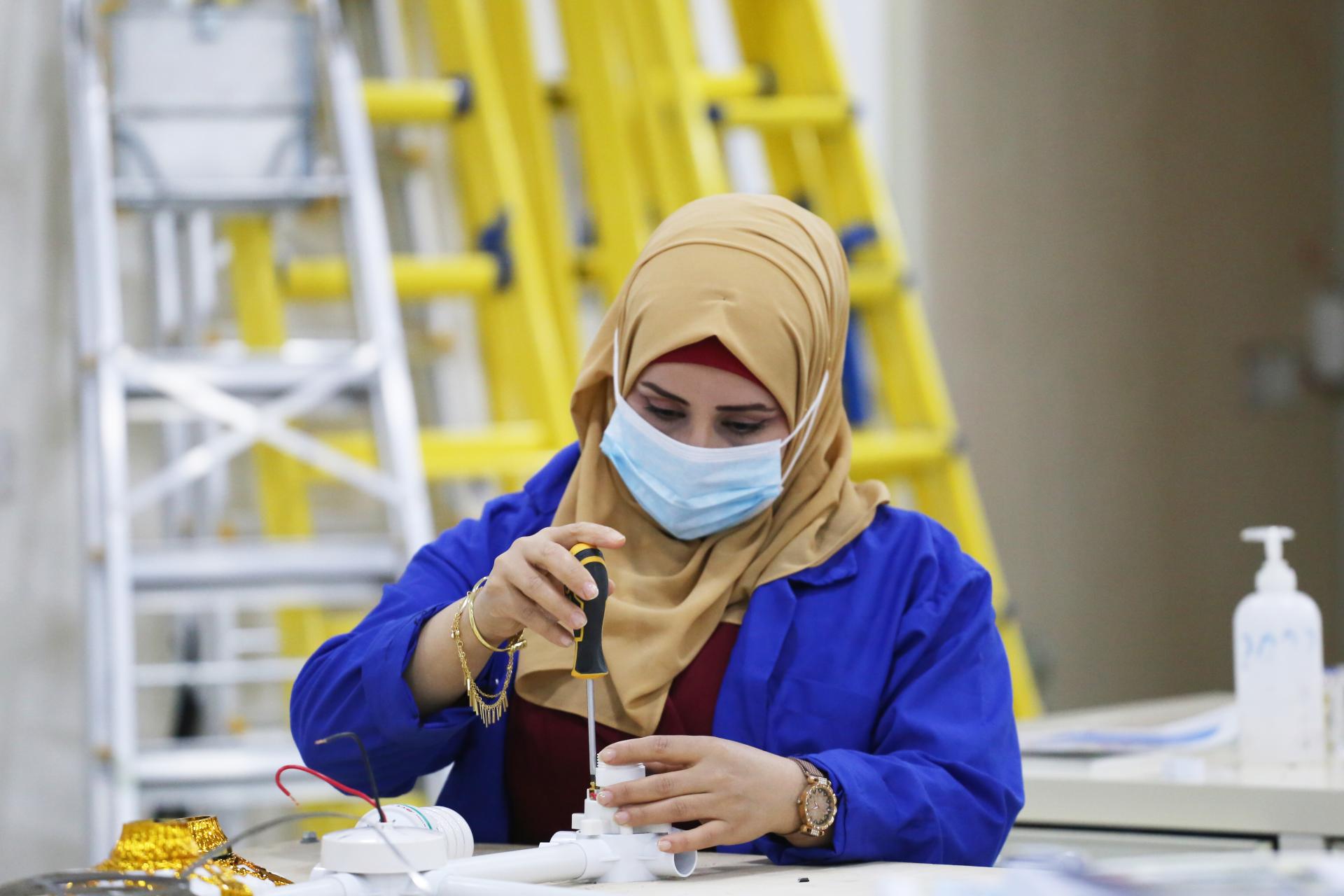
Faten attends a training course on electrical repair at the Center.
For Iyad Nafeh Hussein, 37, the course in wielding has helped kick start his business. "The skills I learnt will stay with me all my life. Most importantly, the workshop is well equipped and maintained. I was able to gain practical and hands-on experience." Displaced during the conflict, he returned to Ramadi in 2018 and struggled to make ends meet. "I have hope now. I want to start spreading the word that I am available and ready to work."

Iyad during a training course on wielding at the Center.
More than five years since liberation from ISIL, Iraq faces new sources of instability due to lack of livelihood opportunities and economic turmoil. Training Centers like this are instrumental in providing technical skills to people who are either unemployed, looking to set up businesses or are unable to access higher education.
“I have big dreams for the people of Ramadi. I hope that we can continue to serve the people and ensure we have a stable economic, social, and security situation. Ensuring smooth functioning of facilities like the vocational training Center will contribute to Ramadi’s stability and economic growth. I hope that we keep engaging young people in productive and economic activities, so they can move away from extremism and contribute to the future of Iraq,” adds Dr. Ibrahim, the Mayor of Ramadi.
Today, with over fourteen courses being conducted three days a week, the Ramadi Vocational Training Center is bustling with energy and promise.
The rehabilitation and equipping of the Vocational Training Center in Ramadi were implemented by UNDP Iraq’s Funding Facility for Stabilization (FFS). The rehabilitation was funded by USAID, while the supply of IT equipment and furniture was supported by the Federal Republic of Germany, provided through KFW Development Bank. Supply of specific workshop equipment was supported by Finland, Norway, Italy, Denmark, Sweden and the European Union.

 Locations
Locations


